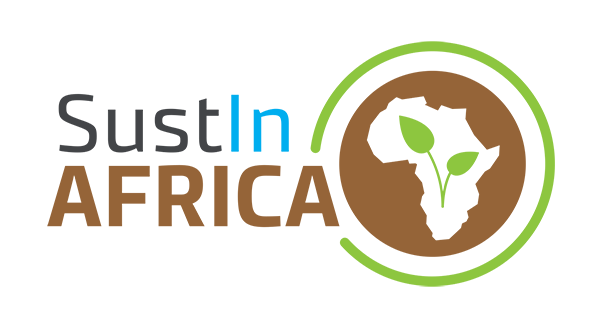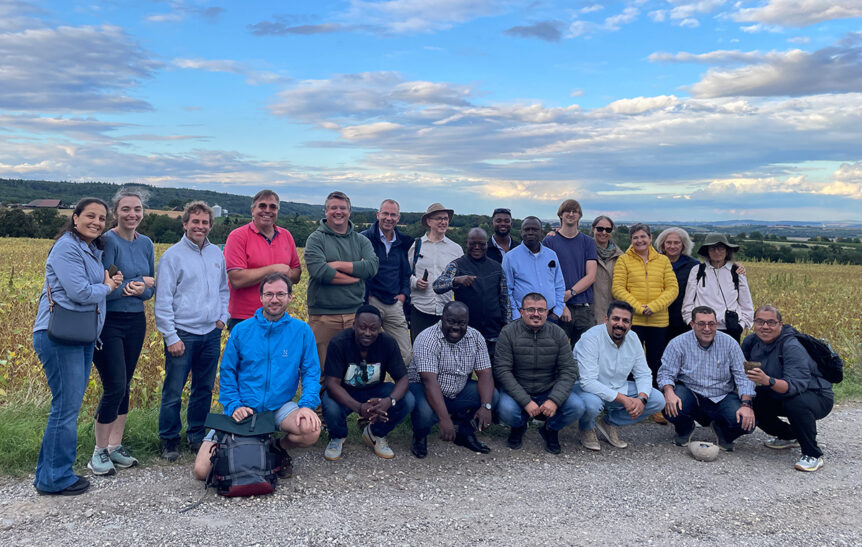SustInAfrica consortium gathered in Vienna to plan final phase of the project
The SustInAfrica consortium convened in Vienna from the 8th to the 11th of September 2024, for its fourth annual meeting, to assess the project’s progress and set the roadmap for its final year, which will conclude in August 2025, with a possible extension until February 2026. The gathering brought together experts and members from various work packages (WPs) to discuss both scientific and administrative aspects, aiming to foster collaboration and facilitate the project’s successful implementation. Several members of our consortium had the exciting opportunity to showcase their research through engaging poster presentations at the recent Tropentag conference which was also held in the vibrant city of Vienna. Among the highlights of the conference was the participation of SustInAfrica, which took center stage by presenting the latest progress of the project. This presentation was part of a larger cluster event that featured several Horizon 2020 sister projects, allowing for a rich exchange of insights and experiences.



Main objectives of the meeting
The primary focus of this year’s meeting was twofold: reflecting on the achievements of the past year and outlining the action plan for the project’s final stretch. During these days in Vienna, the consortium aimed to strengthen collaboration among participants, promote knowledge sharing, and address key challenges to ensure the project’s overall success. Specifically, the meeting was organized around four main objectives:
- Developing activities for the coming year: One of the main priorities was to discuss and plan the activities to be carried out in the upcoming year across the various WPs. This involved setting clear milestones, timelines, and strategies for each work package, ensuring that the project’s goals would be met efficiently and effectively by the end of its timeline.
- Overcoming obstacles: The meeting served as an opportunity to identify any key obstacles during the past year. Participants worked together to find common and viable solutions to these challenges, ensuring that project actions could continue smoothly. This collaborative approach allowed for problem-solving and the exchange of innovative ideas among partners.
- Achieving scientifically relevant results: A critical aspect of the discussions was the identification of win-win solutions for all partners involved. By focusing on approaches that benefit everyone, the consortium aimed to achieve scientifically relevant results that not only advance academic knowledge but also have practical applications in the territories targeted by the project.
- Inducing desired changes in targeted territories: Another key focus was on finding solutions that would bring about the desired changes in the territories impacted by the project. Discussions revolved around identifying practices and interventions that could drive sustainable development beyond the project period, supporting the project’s overarching goal of fostering resilience in the targeted African agricultural systems.



Cultural activities: Exploring the heart of Vienna and beyond
In addition to the intense planning sessions and discussions, the SustInAfrica consortium took the opportunity to immerse themselves in Austrian culture and explore some of Vienna’s historical and natural treasures. These cultural activities offered participants a chance to bond, learn, and recharge in the midst of a busy schedule.
On Sunday, the group embarked on a city tour led by a professional guide. This bus tour provided a fascinating dive into Austrian history, cultural nuances, and Viennese traditions. Participants were treated to a rich narrative that brought the city’s heritage to life, highlighting Vienna’s historical architecture, its musical legacy, and the customs that make it unique. The day concluded with an exploration of Viennese cuisine at a traditional “Heuriger” in the charming area of Grinzing. This wine tavern, nestled amidst rolling vineyards, offered an authentic taste of local dishes in a warm and rustic setting.
The cultural exploration continued on Tuesday with a journey to the countryside in the Weinviertel region. Here, the group visited a regenerative agriculture farm managed by an experimental farmer known for pushing the boundaries of modern farming practices. The visit provided valuable insights into sustainable agriculture, aligning with the consortium’s objectives, and inspired discussions on innovative farming methods that could be incorporated into the project’s activities.
These cultural excursions not only enriched the participants’ understanding of Austrian heritage and sustainable farming practices but also fostered a sense of community among the consortium members, setting a positive tone for the collaborative efforts in the project’s final phase.

